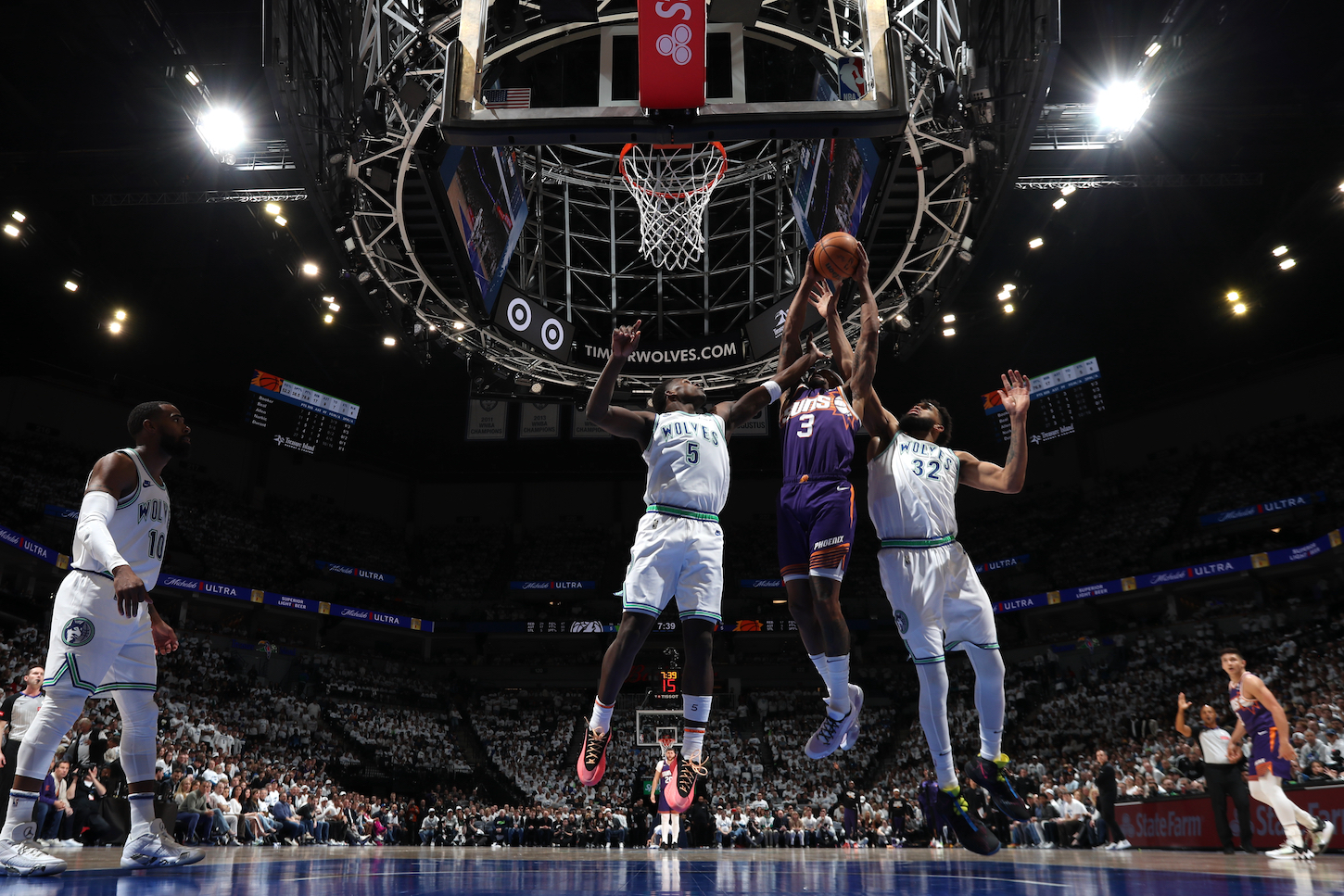I would not want to dismiss or disrespect the good work done by Minnesota's less outrageously proportioned players in the Timberwolves' 120-95 Saturday drubbing of the Phoenix Suns in Game 1 of their first-round series. Anthony Edwards (6-foot-4, normal in NBA terms) was fantastic, led all scorers with 33 points, and provided the game's indelible image when he pounded his chest and woofed at Kevin Durant after draining a three in a crucial third-quarter run.
Most of the discussion ahead of Game 2, and probably for as long as this series lasts, will be about the precocious 22-year-old Edwards, who certainly seems like he might be blossoming into an MVP type of guy as we speak. He deserves the attention. It's just, great googly moogly, the Wolves are freaking enormous.
The defining patterns of Game 1 went like this: The Suns would miss a shot, and the Wolves would rebound it. The Wolves would miss a shot, and the Wolves would rebound it. A Suns player would drive or cut toward the basket, and there would be one or two or three gigantic Minnesota players—from among Rudy Gobert, Karl-Anthony Towns, Naz Reid, and Jaden McDaniels—there to wall him off. A Minnesota player would drive or cut toward the basket, and he would be much larger than all the surrounding Suns players; or if he were not, it would be because Phoenix's Jusuf Nurkic was nearby, and the gigantic Minnesota guy would pass the ball to one of his very gigantic teammates, who would be taller than all the surrounding Suns guys. And he'd drop that sucker into the hoop.
I'm sorry. That sounds oversimplified and dumb. It also seemed, watching on TV, oversimplified and dumb. The fact of the matter is, the hoop is up there. This is a fixed and essential feature of the sport of basketball. Being closer to the hoop is an advantage, the way that being extremely fast is an advantage in sports played on more horizontal terms because it means you can be closer to the key places in those sports sooner than somebody who is not as fast. The Suns, I think it is fair to say, have something like three of the four—if not three of the three—most sublimely skilled and accomplished basketball players in this series in Durant, Devin Booker, and Bradley Beal. But the Timberwolves are just so big and strong, man!
The Wolves grabbed 13 offensive rebounds, to Phoenix's three. They collected 39 defensive rebounds, to Phoenix's 25. They rebounded just shy of 64 percent of all the game's missed shots; not coincidentally, they attempted 13 more shots than the Suns did. For all that, the most damning statistical cross-section of Game 1 might be this: Phoenix's Big 3 (Durant, Booker, Beal) combined to perform pretty well, at least as far as the counting numbers are concerned. Booker shot terribly, but the three of them taken together scored 64 points of 43 shots.
That should alarm Suns fans: The value proposition of that Big 3 is the value proposition of having three supremely skilled scorers on one team. In its way, it's a team construction every bit as simplistic and brainless as Have lots of huge ogres. The Suns delivered on it in Game 1 ... and lost by 25 points to Have lots of huge ogres. The ogres never even really broke a sweat.






